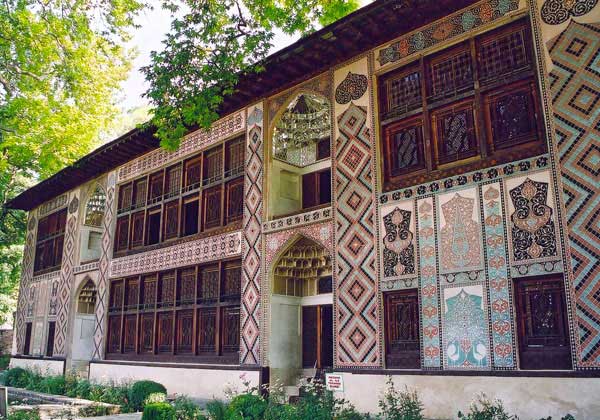Euronews: “Sheki - the pearl of the Caucasus: silk, tea and palaces"

The Euronews channel has broadcasted a program on the Azerbaijani town of Sheki, entitled "Sheki - the pearl of the Caucasus: silk, tea and palaces".
The report says: "This final edition of Azerbaijan Life takes us
to the city of Sheki, nestling in the foothills of the Caucasus
mountains.
For centuries, it has been a stop-over on the Silk Road for traders
and merchants. It remains a vibrant hub, its daily market drawing
eager stall holders and shoppers from the outlying villages.
One Sheki industry is well known beyond Azerbaijan's borders - the
silk works. Handmade carpets made to order. With silk threads, one
worker will stitch just two centimeters per day, while four
centimeters of wool are added until it is completed.
The colors are all from natural sources, mixed to an old recipe.
One breathtaking carpet we saw took eight long months to complete -
a work of art.
'We are very proud. We made this carpet with our own hands, yes,
our golden hands,' said a proud worker.
In one area, the factory has embraced modern technology for the
silk threads, which all come from the company's own silk worms.
'The silk factory has been going since 1931. Thanks to new
technology, our factory is becoming more advanced, but we still
only use natural colours,' says Sheki Silk Company manager Natella
Movsumova. 'We make carpets, scarves and handkerchiefs of natural
silk only. Sheki is famous for its silk industry and we aim to
follow our traditions and to maintain those traditional methods and
respect our history.'
The exquisite stained glass windows of the Sheki Khan Palace owe
their existence to the silk industry. Italian merchants brought the
glass here to trade it for silk. Decorated with magnificent
frescos, the palace was built in 1762 by Hussein Khan, who was also
a well-known poet.
The World Bank met the bill for its restoration nine years ago. The
original roof has been renovated by traditional craftsmen - no
nails or glue were used.
'If there wasn't any other historical place in Azerbaijan, if there
wasn't anything else, it would be enough to show Sheki Khan Palace
to the world as proof of our history, our architecture and our art
because here, all the architectural styles are mixed,' says our
guide Zamina Rasulova.
The tea house is also rich in Azeri history. Tradition has it you
first take some sugar before the strong tea reaches your lips. In
medieval times, rulers believed the sugar would cancel out any
poison which their enemies may have left in the tea. No poisonous
acts have been recorded here - nothing stronger than herbs such as
thyme and mint.
Azerbaijanis have a saying: 'When you drink tea, the cup count
doesn't matter.' Tea is almost sacred here.
Travelling in this region in the 13th century, the world famous
explorer Marco Polo reported he saw springs of "black goo" bubbling
from the ground. Many of those springs have been covered over, but
there remains so much oil, you can take a bath in it. A therapeutic
visit to a local oil spa has become popular.
'I am very positive about an oil bath. I have been here before and
I saw an improvement in my health so I came back,' says one
man.
'It's a marvellous therapy, it's like having a bath in hot
chocolate,' says a woman.
People have been taking oil spas for hundreds of years. Back then,
medicine men said it had many, many benefits. More recently,
doctors have said it is good for skin complaints. Ten minutes is
the maximum you can stay emerged in the bath."
Here we are to serve you with news right now. It does not cost much, but worth your attention.
Choose to support open, independent, quality journalism and subscribe on a monthly basis.
By subscribing to our online newspaper, you can have full digital access to all news, analysis, and much more.
You can also follow AzerNEWS on Twitter @AzerNewsAz or Facebook @AzerNewsNewspaper
Thank you!
